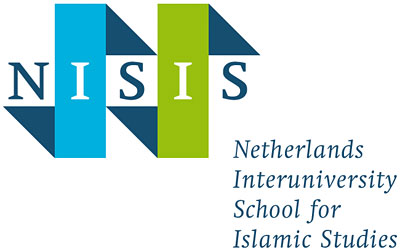| The Annual Medieval Middle East Meeting (AMMEM) is a yearly event in the Netherlands supported by NISIS and the Dutch Research School for Medieval Studies.
This initiative is a yearly forum for students, junior, middle-career and senior scholars to present work-in-progress that is related to the Medieval Middle East. The aim is to receive feedback, keep up to date, and build relationships across disciplines and departmental affiliations. MA and PhD students are strongly encouraged to participate and gain experience and feedback from more senior colleagues.
Register here to attend and/or present: https://docs.google.com/forms/d/e/1FAIpQLSfTVFCNtBLbIfbdeP_V8i5nuRVL1zXkZthLEnfrxjIBFOeQQw/viewform?usp=header
All welcome: MA students, (Re)MA students, PhDs, Postdocs, Lecturers, Professors and independent scholars
Course load (for Research MA students only): 1 ECTS
Coordinators: Edmund Hayes (e.p.hayes@hum.leidenuniv.nl), Josephine van den Bent (j.m.c.vandenbent@uva.nl)
AMMEM description: https://ammem.hcommons.org/
Registrations:
This year we invite abstracts of three different kinds, including traditional papers and a new format of short “pitches and presentations:
- 15 min papers centred upon the study of manuscripts. We will start the day among the Islamicate manuscript collection of Leiden University Library. We therefore specifically invite abstracts dealing with manuscripts.
- 15 min papers on all other topics relevant to the medieval Middle East.
- 5 min “Pitches and Presentations” (see below)
For all of these, abstracts of no more than 300 words should be sent to the organisers (Edmund Hayes e.p.hayes@hum.leidenuniv.nl and Josephine van den Bent, j.m.c.vandenbent@uva.nl) by 19 September 2025. The first 2 kinds of papers will be 15 minutes long followed by 10 minutes for Q&A. “Pitches and Presentations” will be 5 minutes long, followed by 15 minutes for Q&A and feedback. Places will be allocated on a first-come-first served basis, but also with attention to balance in topic and seniority.
In addition, there will, as in previous years, be a roundtable. (See below)
Graduate student “Pitches and Presentations.”
For this format, we invite (Research) MA students and early-stage PhD candidates to send in 100-word abstracts for short presentations. Students will present for 5 minutes using a maximum of 2 PowerPoint (or equivalent programme) slides. They have the option to either briefly explain their research plans (“Pitch”), or to briefly present (preliminary) results or a source that they are planning to use in their research, and how they hope to use it, to solicit a focused discussion on methodology that will be directly useful to them (“Presentation”). The 5-minute pitch or presentation will be followed by 15 minutes of feedback from experts in the audience. Students are encouraged to raise questions and/or identify aspects of their research that they would like feedback or suggestions on. This format is aimed and providing an opportunity for feedback at an early stage.
Of course, students who would rather send in an abstract for a traditional 15-minute presentation in one of the other panels are more than welcome to do so.
Attending the entire Meeting and participating in the “Pitches and Presentations”-panel (or another panel) will earn ReMA students 1 EC. Alternatively, ReMA students will also still be able to earn 1 EC by attending the entire Meeting and handing in a written reflection outlining what insights they gained with regard to their own research. This latter option is intended especially for those students in the first weeks of their ReMA.
Roundtable
Each year we aim to have a roundtable on a special theme. In 2025, the roundtable theme will be “Bridging the Gap: Texts and Material Sources in the Study of the Medieval Middle East”. In the study of the medieval Middle East, there is a gap between specialists of textual and material cultures. This is perhaps more pronounced than in fields like Classics, in which archaeology and philology have long been in dialogue; or in the study of medieval Western Europe, where the proximity of collections of manuscripts and the conduct of archaeological digs to the people studying them means that there are greater opportunities to work with, think about and to stumble across objects. With the exception of Spain, where scholars of al-Andalus live amongst the traces of the cultures that they study, Western academic engagements with materiality can be somewhat disconnected. Poor institutional connections with academic institutions located in the Middle East, and the sometimes suboptimal protection of or access to tangible cultural heritage in the Middle East also create challenges. And yet, in spite of these challenges, there has been something of a material turn in recent years towards increasing integration of material objects in scholarship. In this panel, we discuss the challenges, methodologies and best practices of using material culture in the study of the medieval Middle East: art, archaeology, architecture, inscriptions, manuscripts and so on.
Please let us know if you would be interested in participating or nominating one of your colleagues for this roundtable!
|


